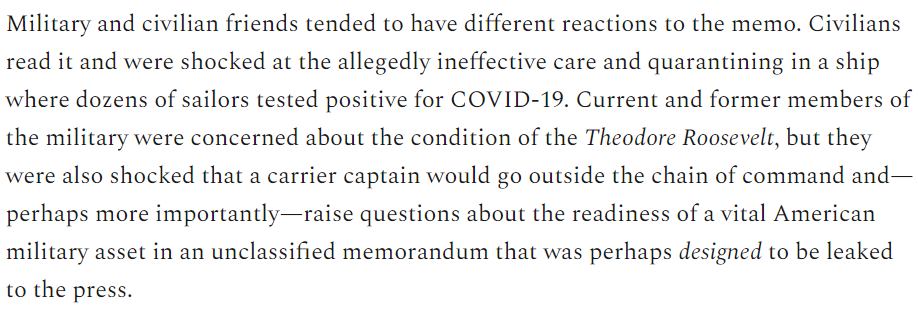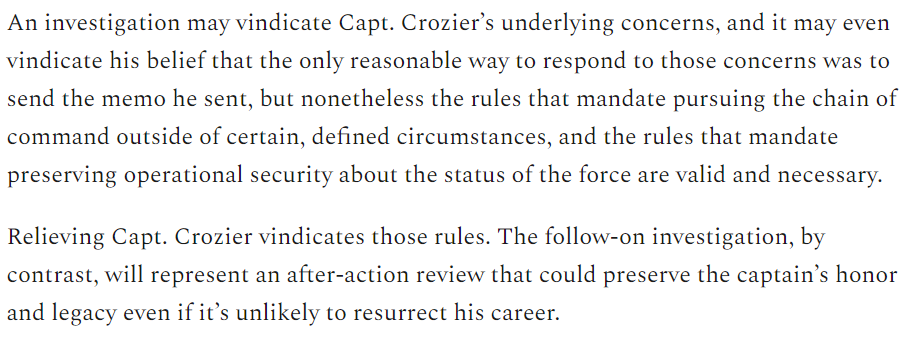The Capt. Crozier controversy -- a thread based on my newsletter today (paywalled, sorry!). I& #39;m finding an interesting divide between military and civilian on these facts (not universal, of course, but still meaningful). /1 https://frenchpress.thedispatch.com/p/the-capt-crozier-controversy-this">https://frenchpress.thedispatch.com/p/the-cap...
Capt. Crozier had to know that his action would likely end his career. He did it anyway. Why? Panic seems like the least likely explanation: /2
It seems more likely that he believed in good faith that he had to take extraordinary action to protect his crew, even if it cost him his career, and there is context to his concern: /3
(By the way, if you haven& #39;t read @propublica& #39;s extraordinary reporting on the Navy& #39;s collisions and the stunning command and training failures they revealed, you& #39;re missing out on some incredible journalism): /4 https://www.propublica.org/series/navy-accidents-pacific-7th-fleet">https://www.propublica.org/series/na...
Even if Capt. Crozier& #39;s sacrifice was honorable, his relief was likely necessary. In particular, publicly casting doubt on the readiness of a significant military asset should carry consequences. /5
But just as Capt. Crozier burned down his career, so did Acting Secretary Modly, but it& #39;s hard to see the honor in Modly& #39;s actions. /6
Putting it all together, Americans should be concerned. Is the state of military command so dysfunctional that a good officer felt like he had to sacrifice his career to protect his crew? What is the strategic impact of turmoil at the top of the Navy? /8
The Pacific Fleet is one of the most storied and vital commands in the entire United States military. It has suffered terrible, avoidable losses and leadership scandals. Military power depends more on courage and competence than budgets and equipment. /end

 Read on Twitter
Read on Twitter







